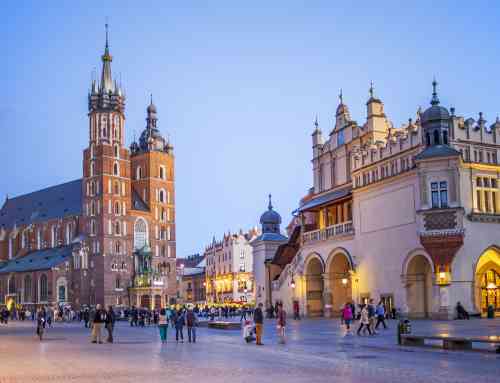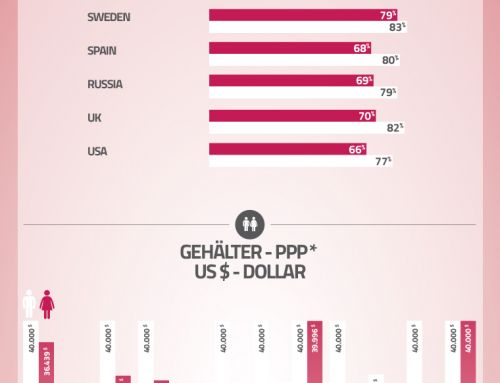Germany – rather an exception than the rule
If you compare different cultures, you will find that many cultures are different from the German culture in many aspects. Still, Germany is on the forefront of the business world, so it is quite important to look at those aspects to get the full benefits of your business relationship with this country. As usual, the is no better of worse in intercultural cooperation, there are just differences. But those can be very important.
Typically German – what is that?
As every country, Germany has some very special aspects. In my seminars about Germany, I always ask what is „typical German“. The answers usually reflect stereotypes depending on the experiences that the seminar participants had with Germany before. However, sometimes some aspects pop up that are quite unique to Germany. Here are some of them:
- Data security
Germans are obsessed with data security. In fact, we have one of the strongest data protection laws in the whole world. It is always a big deal, if data of social media for example (Facebook, What´s App, Google etc.) is stored outside of the European Union. Still, almost all young people use those services, like in other countries. However, there is ometimes a contradiction.
When the government wanted to introduce an App to track Corona contacts, the outcry was big, because the governemnt would then be able to trace the whereabouts of the citizens. The solution was a compromise. To use the App was voluntary and the data would not be stored in a central location, rendering the App basically useless. Despite the fact that fighting the pandemic was the primary issues in everything these days, the Germans would not allow a measure that could have proved quite efficient (like in Asia). Still, people accept that Apple and Google know more about us than the Corona Warn-App disclosed.
I believe that one of the reasons for this contradicting behaviour is found in the past. In the Third Reich and in the communist German Democratic Republic, all citizens were subject to government control. That should not happen again and that is why the data exchange even between different governmental departments and authorities is very limited or even forbidden.
- Water
What has water to do here? Very easy. In most countries when you order water, you will get plain water. In Germany, you will get automatically sparkling water unless you ask explicitly for water without gas. Still, some place do not even serve water without gas. I remember that the first time I got acquainted with plain water was when we crossed into France, where the situation is vice-versa.
Sure, today you can get buy both types of water, but the traditional view regarding water is sparkling water.
- Unemotional behaviour suspended
Germans are not known for emotional behaviour. We act rather neutral in business and in private life. Sure, when there is a party there is often laughter and a high mood. However, there are two exceptions to the general rule.
One is, not surprisingly, football (or soccer) games. The other one is carneval. People go out into the streets, wearing masks, sing, shout and behave like there is no tomorrow. When I showed pictures about carnival to other seminar participants, the reactions were sometimes disbelieve and I had to give a lot of explanations. While carnival is prominent also in other countries, the Germans take it somehow to the top and the impression is even enhanced because there is such a difference to everyday behaviour.
In fact, carnival is a catholic „invention“. Before the 40 day fasting period begins before easter, people should have the opportunity to let it all hang out before the days of modesty begin. And as usual, the Germans take this serious. In the past aristocratic days, it was also a higly welcomed opportunity to make fun of the authorities, the military and the noblemen, which was allowed within a certain range.
- Praise – what is that?
There are cultures where praise for merits and achievements a very important part of a good relationsship in business, e.g. between employees and superiors. Gemarns have no praise cultures. The believe that if everything runs perfectly it is normal is widespread. We have a saying that „no criticism is praise enough“. On the other hand, you can get astonishing results if you actually acknowledge achievements. After all, also Germans are just human beings.
- Complaints – a lifestyle
Germans love to complain. And if your attitude is that everything should run perfectly, there are lots of opportunities. Naturally, many things can be done better, but one should put things into perspective as well. A good example is the Corona crisis. Like all other governments, the German government was taken by surprise and not prepared to react to a pandemic. Having seen horrible pictures of Italian hospitals (where Corona struck first to ist full extent in Europe), the politicians had to react. But how? Introduce a stingent lockdown or quarantine like in China? No, bacuse peopolpe have rights guarateed by the constitution. Introduce just some restrictions? No, because that would cause the virus to spread in an uncontrolled way (like in Sweden). The solution was a middle-way, hitting hard on some business sectors (like events, restaurants, museums etc.). The price was a slowdown, but the compromise proved as something feasible. The government also generoulsy supported businesses with payments (while many businesses complain that the money is paid out too slowly). Our health system did not break down, while the social life was hit hard, but the economy as a whole continued.
Now, we have vaccines against Corona. And more complaints, because it was not available in right numbers from the very beginning. If the EU had bought more vaccines at a point in time when no one could have told that the vaccine was actually efficient, there would have been criticism. Now that we know, we have to wait for more doses to arrive, which is wrong again.
- Need for speed
German cars are known for good contructions and powerful engines – and the Germans use them for Germany ist he only country in the world that has no general speed limit on motorways! There are many reasons for speed limits, e.g. safety and environment. However, „free rides for free citizens“ (an actual slogan oft he motor lobby) is somehow in our genes. And no government dared to introduce a general speed limit, though local speed limits according to need, e.g. around big cities, exist. I once explained that to American seminar participants that introducing a general speed limit would be regarded by the Germans like if you forbid the US-Americans to buy weapons.
I even know some people who came to Germany just to drive fast (200 Kilometers per hour or more = over 125 miles per hour) once in their life. But to be fair – most people, including myself, drive around 130 Kilometers/hour (ca. 80 miles/hour) on the motorways for most of the time.
- An unexpected variety
Germany is not really known for fine food. In fact, we eat rather „down-to-earth-food“ than refined specialties. Nevertheless, German food is quite hearty, yet tasteful and there are lots of regional specialties. However, Germans are world champions concerning the varieties of some favourites. As a result, Germany offers the largest variety in
- Beers (no wonder!)
- Sausages
- Bread
If you like those, Germany is the right place for you.
- Rules
Germans like rules. In written form. For some reason, Germans seem to be happy if they have a coded reference. And the funny thing is that they actually follow the rules. A friend of mine from Austria worked in the ministry of agriculture in Vienna. He told me that Germany and Austria had most problems regarding transferring European regulations into their national laws. Other countries in Southern Europe had no issue. He explained that if there is a new European regulation, Germans and Austrians carefully study it, evaluate the consequences and then start to discuss possible adjustments. Other countries just pass a new law and that´s it. However, the catching point is that Germans obey the rules, so they want to make sure that they can. Other countries pass a law, but that is sometimes rather a written statement that can be interpreted.
- Security first
Germans love to plan. Why? Apart from the fact that it is usually good to know in which direction you are going when you embark on a business venture or project, the Germans want to make sure that everything goes smoothly. They like to anticipate possible problems and to formulate measures in order to avoid them. They are definitely not the „let´s go and try“-sort of people.
This is, by the way, a major factor for problems between Germans and US-Americans. Americans rather start a project and take corrective action when probems arise. The German rather want to think all aspects through before they start. Both strategies have their pros and cons, but for the Americans, the Germans are people who hold things up rather than bringing them forward. And for the Germans the Americans are gamblers who take unnecessary risks.
The many facets of Germany
Here I could just mention some peculiarities of Germany and its citizens. As you can well imagine, there are more facets that should be looked at when doing business in Germany. In an intercultural training Germany, you will be made familiar with the most important ones and how to deal with them. It is for sure worth it, for after all, another aspect of German business life is that Germans are reliable business partners.





































